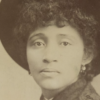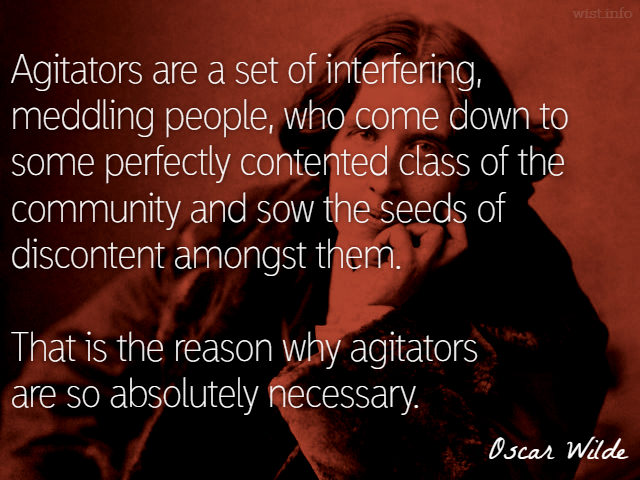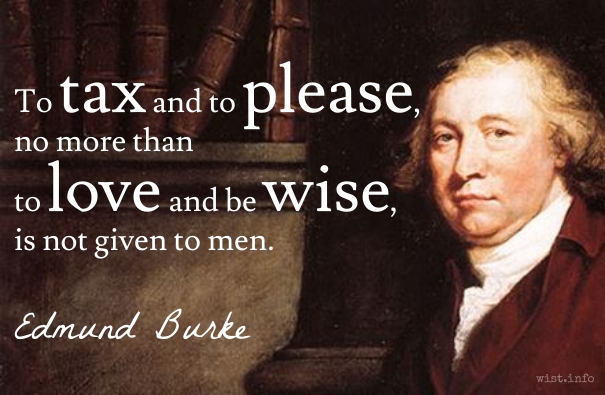Standing up to your government can mean standing up for your country.
Bill Moyers (b. 1934) American journalist and public commentator
Closing comments, NOW (PBS) (2003-02-28)
(Source)
Regarding patriotism and opposition to the impending war in Iraq. Moyers quoted the comments in a speech to National Conference for Media Reform (St Louis) (2005-05-15); the phrase is often cited to that occasion.
Quotations about:
protest
Note not all quotations have been tagged, so Search may find additional quotes on this topic.
At times history and fate meet at a single time in a single place to shape a turning point in man’s unending search for freedom. So it was at Lexington and Concord. So it was a century ago at Appomattox. So it was last week in Selma, Alabama.
There, long-suffering men and women peacefully protested the denial of their rights as Americans. Many were brutally assaulted. One good man, a man of God, was killed.
There is no cause for pride in what has happened in Selma. There is no cause for self-satisfaction in the long denial of equal rights of millions of Americans. But there is cause for hope and for faith in our democracy in what is happening here tonight.
For the cries of pain and the hymns and protests of oppressed people have summoned into convocation all the majesty of this great Government — the Government of the greatest Nation on earth.Lyndon B. Johnson (1908-1973) American politician, educator, US President (1963-69)
“The American Promise,” speech to a Joint Session of Congress [04:25] (1965-03-15)
(Source)
A nationally broadcast address, introducing the Voting Rights Act of 1965. The mention of Selma is in reference to the events of "Bloody Sunday" on 7 March 1965.
Violent means are unlikely to reach a peaceful end … the ends and means are a seamless web.
Gloria Steinem (b. 1934) American feminist, journalist, activist
Moving Beyond Words, Part 6 “Doing Sixty” (1994)
(Source)
Regarding the Vietnam anti-war movement.
When it gets down to having to use violence, then you are playing the system’s game. The establishment will irritate you — pull your beard, flick your face — to make you fight. Because once they’ve got you violent, then they know how to handle you. The only thing they don’t know how to handle is non-violence and humor.
John Lennon (1940-1980) English rock musician, singer, songwriter
Interview, Bed-Ins for Peace, Montreal, Canada (1 Jun 1969)
(Source)
Here lamentation, groans, and wailings deep
Reverberated through the starless air,
So that it made me at the beginning weep.
Uncouth tongues, horrible chatterings of despair,
Shrill and faint cries, words of grief, tones of rage,
And with it all, smiting of hands, were there,
Making a tumult nothing could assuage,
To swirl in the air that knows not day or night,
Like sand within the whirlwind’s eddying cage.[Quivi sospiri, pianti e alti guai
risonavan per l’aere sanza stelle,
per ch’io al cominciar ne lagrimai.
Diverse lingue, orribili favelle,
parole di dolore, accenti d’ira,
voci alte e fioche, e suon di man con elle
facevano un tumolto, il qual s’aggira
sempre in quell’aura sanza tempo tinta,
come la rena quando turbo spira.]Dante Alighieri (1265-1321) Italian poet
The Divine Comedy [Divina Commedia], Book 1 “Inferno,” Canto 3, l. 22ff (3.22-30) (1309) [tr. Binyon (1943)]
(Source)
Not even in Hell itself, but its antechamber, these are the sounds of those eternally rejected by both Heaven and Hell for standing neutral and not committing to either side. (Source (Italian)). Alternate translations:
There Sighs, and Cries, and horrid Howlings mix'd
With Shrieks, re-echo'd through the starless air,
Which frequent tears of pity from me drew.
Variety of tongues, reproaching Taunts,
Words grief expressing, Accents full of ire,
Voices both loud and hoarse, and clapping Hands
Rais'd in that dusky air a tumult wild,
Like to the sand when by a whirlwind toss'd.
[tr. Rogers (1782), l. 20ff]
Thence, Oh! what wailings from the abject throng
Around the starless sky incessant rung;
The short, shrill shriek, and long resounding groan,
The thick sob, panting thro' the cheerless air,
The lamentagle strain of sad despair,
And blasphemy, with fierce relentless tone.
Volleying around, the full, infernal choir,
Barbarian tongues, and plaints, and words of ire,
(With oft' between the harsh inflicted blow)
In loud discordance from the tribes forlorn
Tumultuous rose, as in a whirlwind borne,
With execrations mix'd, and murmurs low.
[tr. Boyd (1802), st. 6-7]
Here sighs with lamentations and loud moans
Resounded through the air pierc'd by no star,
That e'en I wept at entering. Various tongues,
Horrible languages, outcries of woe,
Accents of anger, voices deep and hoarse,
With hands together smote that swell'd the sounds,
Made up a tumult, that for ever whirls
Round through that air with solid darkness stain'd,
Like to the sand that in the whirlwind flies.
[tr. Cary (1814)]
Sighs there, and moaning sobs, and shriller cries
Rebounded echoing through the starless air.
And early forced the tear-gush from mine eyes:
Tongues of all strain, dread language of despair.
Words born of anguish, accents choked with ire,
And voices loud and hoarse were mingling there
With sound of hands, to swell one uproar dire
That aye went eddying round that timeless gloom.
As the sand eddieth in the whirlwind's gyre.
[tr. Dayman (1843)]
Here sighs, plaints, and deep wailings sounded through the starless air: it made me weep at first.
Strange tongues, horrible outcries, words of pain, tones of anger, voices deep and hoarse, and the sounds of hands amongst them,
made a tumult, which turns itself unceasing in that air for ever dyed, as sand when [it eddies in a whirlwind].
[tr. Carlyle (1849)]
And then the sighs, complaints, and loud, loud groans
Resounding through the air without a star,
Began to wring my heart with many a tear.
Diverse the tongues and language horrible,
The words of sorrow and accents of ire --
High and weak voices -- sound of smiting there
A tumult made, that seemed t' encompass all
Within that air, which colourless expands
For aye, as when the whirlwinds raise the sands.
[tr. Bannerman (1850)]
Here sighs and moans and wailings terrible
Resounded through the dim and starless air;
Ev'n at the first my tears might not be stay'd.
Tongues divedrse, foul and horrible discourse,
Utterings of grief and accents of deep rage,
Words loud and hoarse, the sound of raging hands
Fierce tumult made, which sweeps with ceaseless roll
In the deep darkness of that timeless air,
As the sand rushes where the whirlwind blow.
[tr. Johnston (1867)]
There sighs, complaints, and ululations loud
Resounded through the air without a star,
Whence I, at the beginning, wept thereat.
Languages diverse, horrible dialects,
Accents of anger, words of agony,
And voices high and hoarse, with sound of hands,
Made up a tumult that goes whirling on
Forever in that air forever black,
Even as the sand doth, when the whirlwind breathes.
[tr. Longfellow (1867)]
There sighs, lamentations, and loud wailings were resounding through the starless air; wherefore I at the beginning wept for them. Divers languages, horrible speech, words of woe, accents of rage, voices loud and faint, and sounds of hands with them, made a tumult, which ever in that air eternally tinted circles as the sand when it is blowing up for a whirlwind.
[tr. Butler (1885)]
There sighings, and complaints, and wailings deep,
Resounded ever in the starless air,
so that at first I could not help but weep.
Different tongues, speech horrible to hear,
Accents of anger and the words of pain,
Voices both high and low, hand-clappings there,
Made up a tumult which aye whirls amain
Through the thick air, eternally obscure,
Like sand storm-driven o'er the desert plane.
[tr. Minchin (1885)]
Here sighs, laments, and deep wailings were resounding though the starless air; wherefore at first I wept thereat. Strange tongues, horrible cries, words of woe, accents of anger, voices high and hoarse, and sounds of hands with them, were making a tumult which whirls forever in that air dark without change, like the sand when the whirlwind breathes.
[tr. Norton (1892)]
Here sighs and lamentations and loud cries resounded through the starless air, wherefore at the first I wept to hear them. Tongues of many nations, utterings of horror, words of tribulation, tones of anger, voices loud and hoarse, and amongst them the sounds of hands, made an uproar that circleth unceasingly in that ever darksome air, even as the sand when the hurricane bloweth.
[tr. Sullivan (1893)]
Here sighs and lamentations and shrill wailings
Resounded through the air by stars unlighted;
Wherefore I wept thereat, e'en at the outset.
Horrible jargons, tongues of divers peoples,
Accents of anger, words of bitter sorrow,
Shrill and faint voices, sounds of hands among them,
Made a tumultuous uproar, that for ever
Eddies athwart that air's eternal blackness,
As sand when there is blast of coming whirlwind.
[tr. Griffith (1908)]
There sighs, lamentations and loud wailings resounded through the starless air, so that at first it made me weep; strange tongues, horrible language, words of pain, tones of anger, voices loud and hoarse, and with these the sound of hands, madea tumult which is whirling always through that air forever dark, as sand eddies in a whirlwind.
[tr. Sinclair (1939)]
Here sighing, and here crying, and loud railing
Smote on the starles air, with lamentation,
So that at first I wept to hear such wailing.
Tongues mixed and mingled, horrible execration,
Shrill shrieks, hoarse groans, fierce yells and hideous blether
And clapping of hands thereto, without cessation
Made tumult through the timeless night, that hither
And thither drives in dizzying circles sped,
As whirlwind whips the spinning sands together.
[tr. Sayers (1949)]
Here sighs and cries and wails coiled and recoiled
on the starless air, spilling my soul to tears.
A confusion of tongues and monstrous accents toiled
in pain and anger. Voices hoarse and shrill
and sounds of blows, all intermingled, raised
tumult and pandemonium that still
whirls on the air forever dirty with it
as if a whirlwind sucked at sand.
[tr. Ciardi (1954), ll. 22-29]
Here sighs, laments, and loud wailings were resounding through the starless air, so that at first they made me weep. Strange tongues, horrible outcries, utterances of woe, accents of anger, voices shrill and faint, and the beating of hands among them, were making a tumult that swirls unceasingly in that dark and timeless air, like sand when a whirlwind blows.
[tr. Singleton (1970)]
Here sighs and cries and shrieks of lamentation
echoed through the starless air of Hell;
at first these sounds resounding made me weep:
tongues confused, a language strained in anguish
with cadences of anger, shrill outcries
and raucous groans in time to slapping hands,
raising a whirling storm that turns itself
forever through that air of endless black,
like grains of sand swirling when a whirlwind blows.
[tr. Musa (1971)]
Here sighs and lamentations and loud cries
were echoing across the starless air,
so that, as soon as I set out, I wept.
Strange utterances, horrible pronouncements,
accents of anger, words of suffering,
and voices shrill and faint, and beating hands --
all went to make a tumult that will whirl
forever through that turbid, timeless air,
like sand that eddies when a whirlwind swirls.
[tr. Mandelbaum (1980)]
Here there were sighings and complaints and howlings,
Resounding in the air under no stars;
So that at first I found myself in tears.
A jumble of languages, deformities of speech,
Words which were pain, with intonations of anger,
Voices which were deep and hoarse, hands clapped together,
Made altogether a tumult, round and round,
Unceasingly in that air in which all was colorless,
Just as it might be in a perpetual sandstorm.
[tr. Sisson (1981)]
The sighs, groans, and laments at first were so loud,
Resounding through starless air, I began to weep;
Strange languages, horrible screams, words imbued
With rage or despair, cries as of troubled sleep
Or of a tortured shrillness -- they rose in a coil
Of tumult, along with noises like the slap
Of beating hands, all fused in a ceaseless flail
That churms and frenzies that dark and timeless air
Like sand in a whirlwind.
[tr. Pinsky (1994)]
There sighs, weeping, loud wailing resounded through the starless air, for which at the outset I shed tears.
Strange languages, horrible tongues, words of pain, accents of anger, voices loud and hoarse, and sounds of blows with them,
made a tumult that turns forever in that air darkened without time, like the sand when a whirlwind blows.
[tr. Durling (1996)]
Here sighs, complaints, and deep groans, sounded through the starless air, so that it made me weep at first. Many tongues, a terrible crying, words of sadness, accents of anger, voices deep and hoarse, with sounds of hands amongst them, making a turbulence that turns forever, in that air, stained, eternally, like sand spiraling in a whirlwind.
[tr. Kline (2002)]
Resounding through the starless firmament,
such a commotion of groans and wails of woe,
I wept myself from sheer bewilderment;
outlandish tongues, and accents doloroso,
howls, shrieks, grunts, gasps, bawls,
a never-ending, terrible crescendo,
rising to vast compulsory applause,
revolving like sand or locusts in a storm,
turning the air black as funereal gauze.
[tr. Carson (2002)]
Sighing, sobbing, moans and plaintive wailing
all echoed here through air where no star shone,
and I, as this began, began to weep.
Discordant tongues, harsh accents of horror,
tormented words, the twang of rage, strident
voices, the sound, as well, of smacking hands,
together these all stirred a storm that swirled
for ever in the darkened air where no time was
as sand swept up in breathing spires of wind.
[tr. Kirkpatrick (2006)]
Now sighs, loud wailing, lamentation
resounded through the starless air,
so that I too began to weep.
Unfamiliar tongues, horrendous accents,
words of suffering, cries of rage, voices
loud and faint, the sound of slapping hands --
all these made a tumult, always whirling
in that black and timeless air,
as sand is swirled in a whirlwind.
[tr. Hollander/Hollander (2007)]
To that unknown place, where shrieks and desperate sighs,
Weeping, and fervent moaning filled the starless
Air; I couild not keep myself from crying.
All sorts of tongues, a flood of horrible words,
Much aching speech, with bursts of furious rage,
Some loud, some weak, and hands that flapped like birds,
Blew in a swirling roar, forever created
Anew, whirling around in that timeless air,
Dark as pellets of sand in a hurricane.
[tr. Raffel (2010)]
Where sighs and moans and screams of ruined men,
Filling the air beneath the starless sky,
Resounding everywhere, ane everywhere
Was there inside me. I began to cry,
Stunned by the sound of an unseen nightmare.
Inhuman outcries in all human tongues,
Bad language, bursts of anger, yelps of pain,
Shrill scrambled messages from aching lungs,
And clapped hands, self-applause of the insane:
All this was whipped by its own energy
Into a timeless tumult without form --
Dark as a whirlpool in a dead black sea
Or a whirlwind sucking sand into a storm.
[tr. James (2013), l. 28ff]
The First Amendment means to me, however, that the only constitutional way our Government can preserve itself is to leave its people the fullest possible freedom to praise, criticize or discuss, as they see fit, all governmental policies and to suggest, if they desire, that even its most fundamental postulates are bad and should be changed.
Hugo Black (1886-1971) American politician and jurist, US Supreme Court Justice (1937-71)
Barenblatt v. United States, 360 U.S. 109, 145-46 (1959) [dissent]
(Source)
Governments never lead; they follow progress. When the prison, stake or scaffold can no longer silence the voice of the protesting minority, progress moves on a step, but not until then.
Lucy Parsons (1851-1942) American labor organizer, anarchist, orator [a.k.a. Lucy Gonzalez]
“The Principles of Anarchism,” lecture (1905)
(Source)
Remind them that the sword still hangs upon the wall and the heart still beats within the man, and that that sword will be unsheathed again, if necessary, in defense of your rights. Given them to understand that you will not stand patiently by and see your hard earnings squandered by a luxuriating class of idlers. If the American manhood will arouse itself and speak to those fellows in plain language, not to be misunderstood, they can save themselves, their country and their children, from the fate of poverty which awaits them. Will you do it?
Lucy Parsons (1851-1942) American labor organizer, anarchist, orator [a.k.a. Lucy Gonzalez]
“Wage Slaves vs. Corporations,” The Liberator (24 Sep 1905)
(Source)
We should not forget that our tradition is one of protest and revolt, and it is stultifying to celebrate the rebels of the past — Jefferson and Paine, Emerson and Thoreau — while we silence the rebels of the present.
The Bill of Rights was not written into the Constitution in order to protect governments from “trouble,” but so that the people might have a legitimate method of causing trouble to governments they no longer trusted.
Henry Steele Commager (1902-1998) American historian, writer, activist
Letter to the Editor, New York Times (17 Jun 1971)
(Source)
Men use up their lives in heart-breaking political struggles, or get themselves killed in civil wars, or tortured in the secret prisons of the Gestapo, not in order to establish some central-heated, air-conditioned, strip-lighted Paradise, but because they want a world in which human beings love one another instead of swindling and murdering one another. And they want that world as a first step. Where they go from there is not so certain, and the attempt to foresee it in detail merely confuses the issue.
George Orwell (1903-1950) English writer [pseud. of Eric Arthur Blair]
“Can Socialists Be Happy?” Tribune (20 Dec 1943) [as John Freeman]
(Source)
It is always tempting when you have political discontent in your own country to say it is the fault of some other country and not of your own government.
A. J. P. Taylor (1906-1990) British historian, journalist, broadcaster [Alan John Percivale Taylor]
How Wars Begin (1979)
(Source)
I hate to be a kicker,
I always long for peace,
But the wheel that does the squeaking,
Is the one that gets the grease.Josh Billings (1818-1885) American humorist, aphorist [pseud. of Henry Wheeler Shaw]
“The Kicker” (c. 1870)
A "kicker" was idiom in the era for a complainer. This is a common citation for the origin of "the squeaky wheel gets the grease," but the existence of such a poem has never been verified. The earliest documented version of the phrase is in the Wall Street Journal (20 May 1910): "The wheel that squeaks the loudest / Is the wheel that gets the grease." The metaphor itself can be found in various versions back to at least the 15th Century.
Persecution for the expression of opinions seems to me perfectly logical. If you have no doubt of your premises or your power, and want a certain result with all your heart, you naturally express your wishes in law, and sweep away all opposition. To allow opposition by speech seems to indicate that you think the speech impotent, as when a man says that he has squared the circle, or that you do not care wholeheartedly for the result, or that you doubt either your power or your premises.
But when men have realized that time has upset many fighting faiths, they may come to believe even more than they believe the very foundations of their own conduct that the ultimate good desired is better reached by free trade in ideas — that the best test of truth is the power of the thought to get itself accepted in the competition of the market, and that truth is the only ground upon which their wishes safely can be carried out.
That, at any rate, is the theory of our Constitution. It is an experiment, as all life is an experiment. Every year, if not every day, we have to wager our salvation upon some prophecy based upon imperfect knowledge. While that experiment is part of our system, I think that we should be eternally vigilant against attempts to check the expression of opinions that we loathe and believe to be fraught with death, unless they so imminently threaten immediate interference with the lawful and pressing purposes of the law that an immediate check is required to save the country.
Oliver Wendell Holmes, Jr. (1841-1935) American jurist, Supreme Court Justice
Abrams v. United States, 250 U.S. 616 (1919) [dissent]
(Source)
A strong man must be militant as well as moderate. He must be a realist as well as an idealist. If I am to merit the trust invested in me by some of my race, I must be both of these things. This is why nonviolence is a powerful as well as a just weapon. If you confront a man who has long been cruelly misusing you, and say, “Punish me, if you will; I do not deserve it, but I will accept it, so that the world will know I am right and you are wrong,” then you wield a powerful and a just weapon. This man, your oppressor, is automatically morally defeated, and if he has any conscience, he is ashamed. Wherever this weapon is used in a manner that stirs a community’s, or a nation’s, anguished conscience, then the pressure of public opinion becomes an ally in your just cause.
Martin Luther King, Jr. (1929-1968) American clergyman, civil rights leader, social activist, preacher
Playboy interview (Jan 1965)
(Source)
What is said by great employers of labor against agitators is unquestionably true. Agitators are a set of interfering, meddling people, who come down to some perfectly contented class of the community and sow the seeds of discontent amongst them. That is the reason why agitators are so absolutely necessary. Without them, in our incomplete state, there would be no advance towards civilization.
Oscar Wilde (1854-1900) Irish poet, wit, dramatist
“The Soul of Man Under Socialism” (1891)
(Source)
Agitation is the marshalling of the conscience of a nation to mold its laws.
Robert Peel (1788-1850) British statesman, Prime Minister (1834-35, 1841-46)
(Attributed)
(Source)
Sometimes quoted as "conscience of a people." Widely quoted without source in the late 19th Century (earliest ref. 1881).
Violence as a way of achieving racial justice is both impractical and immoral. It is impractical because it is a descending spiral ending in destruction for all. The old law of an eye for an eye leaves everybody blind. It is immoral because it seeks to humiliate the opponent rather than win his understanding; it seeks to annihilate rather than to convert. Violence is immoral because it thrives on hatred rather than love. It destroys community and makes brotherhood impossible. It leaves society in monologue rather than dialogue. Violence ends by defeating itself. It creates bitterness in the survivors and brutality in the destroyers.
Martin Luther King, Jr. (1929-1968) American clergyman, civil rights leader, social activist, preacher
Stride Toward Freedom, ch. 11 “Where Do We Go from Here?” (1958)
(Source)
You’ve got to rattle your cage door. You’ve got to let them know that you’re in there, and that you want out. Make noise. Cause trouble. You may not win right away, but you’ll sure have a lot more fun.
Florynce "Flo" Kennedy (1916-2000) American lawyer, feminist, civil rights activist
(Attributed)
(Source)
Quoted in Gloria Steinem, "The Verbal Karate of Florynce R. Kennedy, Esq.," Ms. (Mar 1973).
We must meet hate with love. We must meet physical force with soul force. There is still a voice crying out through the vista of time, saying: “Love your enemies , bless them that curse you, pray for them that despitefully use you.” Then, and only then, can you matriculate into the university of eternal life. That same voice cries out in terms lifted to cosmic proportions: “He who lives by the sword will perish by the sword.” And history is replete with the bleached bones of nations that failed to follow this command. We must follow nonviolence and love.
Martin Luther King, Jr. (1929-1968) American clergyman, civil rights leader, social activist, preacher
“Give Us the Ballot,” Speech, Prayer Pilgrimage for Freedom, Washington, DC (1957)
(Source)
Economic privation proceeds by easy stages, and so long as men suffer it patiently the outside world cares little.
John Maynard Keynes (1883-1946) English economist
The Economic Consequences of the Peace, ch. 6 (1919)
(Source)
Being a lover of freedom, when the revolution came in Germany, I looked to the universities to defend it, knowing that they had always boasted of their devotion to the cause of truth; but, no, the universities immediately were silenced. Then I looked to the great editors of the newspapers whose flaming editorials in days gone by had proclaimed their love of freedom; but they, like the universities, were silenced in a few short weeks. Then I looked to individual writers who, as literary guides of Germany, had written much and often concerning the place of freedom in modern life; but they, too, were mute.
Only the church stood squarely across the path of Hitler’s campaign for suppressing truth. I never had any special interest in the church before, but now I feel a great affection and admiration because the church alone has had the courage and persistence to stand for intellectual truth and moral freedom. I am forced thus to confess that what I once despised I now praise unreservedly.
Albert Einstein (1879-1955) German-American physicist
(Disputed)
Regarding the rise of the Nazi party in Germany. Originally attributed in S. Parkes Cadman, "The Conflict Between Church And State In The Third Reich," La Crosse Tribune and Leader-Press (28 Oct 1934), noted as a "free translation" made by a colleague of the writer. Made famous in being quoted in Time (23 Dec 1940). Einstein himself said that he'd said something like this to a journalist, noting that the only German intellectuals supporting individual rights and intellectual freedom in the early Nazi regime were a few churchmen. He later suggested that his words on the matter had been significantly exaggerated, and issued much more critical statements about how the Catholic Church, in particular, had been silent or collaborated with the Nazi regime. More discussion here and here.
A riot is the language of the unheard.
Martin Luther King, Jr. (1929-1968) American clergyman, civil rights leader, social activist, preacher
“The Other America,” speech, Stanford University (14 Apr 1967)
(Source)
What the world expects of Christians is that Christians should speak out, loud and clear, and that they should voice their condemnation in such a way that never a doubt, never the slightest doubt, could rise in the heart of the simplest man. […] Perhaps we cannot prevent this world from being a world in which children are tortured. But we can reduce the number of tortured children. And if you don’t help us, who else in the world can help us do this?
A rioter with a Molotov cocktail in his hands is not fighting for civil rights any more than a Klansman with a sheet on his back and a mask on his face. They are both more or less what the law declares them: lawbreakers, destroyers of constitutional rights and liberties, and ultimately destroyers of a free America.
Lyndon B. Johnson (1908-1973) American politician, educator, US President (1963-69)
Speech (1965-08-20), White House Conference on Equal Employment Opportunity, Washington, DC.
(Source)
Discussing the Watts Riots in Los Angeles (11-16 August).
I hold it that a little rebellion now and then is a good thing, & as necessary in the political world as storms in the physical. Unsuccessful rebellions indeed generally establish the incroachments on the rights of the people which have produced them. An observation of this truth should render honest republican governors so mild in their punishment of rebellions, as not to discourage them too much. It is a medecine necessary for the sound health of government.
Thomas Jefferson (1743-1826) American political philosopher, polymath, statesman, US President (1801-09)
Letter to James Madison (30 Jan 1787)
(Source)
Referring to Shays' Rebellion. See his contemporaneous letter to Abigail Adams.
You know my friends, there comes a time when people get tired of being trampled by the iron feet of oppression. […] We are not wrong, we are not wrong in what we are doing. If we are wrong, the Supreme Court of this nation is wrong. If we are wrong, the Constitution of the United States is wrong. And if we are wrong, God Almighty is wrong. If we are wrong, Jesus of Nazareth was merely a utopian dreamer that never came down to Earth. If we are wrong, justice is a lie, love has no meaning. And we are determined here in Montgomery to work and fight until “justice runs down like water, and righteousness like a mighty stream.”
It is loneliness that makes the loudest noise. This is as true of men as of dogs.
Eric Hoffer (1902-1983) American writer, philosopher, longshoreman
“Thoughts of Eric Hoffer,” New York Times Magazine (1971-04-25)
(Source)
Those of us who shout the loudest about Americanism in making character assassinations are all too frequently those who, by our own words and acts, ignore some of the basic principles of Americanism:
The right to criticize.
The right to hold unpopular beliefs.
The right to protest.
The right of independent thought.The exercise of these rights should not cost one single American citizen his reputation or his right to a livelihood, nor should he be in danger of losing his reputation or livelihood merely because he happens to know someone who holds unpopular beliefs. Who of us doesn’t? Otherwise none of us could call our souls our own. Otherwise thought control would have set in.
Margaret Chase Smith (1897-1965) American politician (US Senator, Maine)
“Declaration of Conscience” (1950-06-01)
(Source)
Speech given in the US Senate.
As you press on for justice, be sure to move with dignity and discipline, using only the weapon of love. Let no man pull you so low as to hate him. Always avoid violence. If you succumb to the temptation of using violence in your struggle, unborn generations will be the recipients of a long and desolate night of bitterness, and your chief legacy to the future will be an endless reign of meaningless chaos.
I stir in it for the sad reason that no other mortal will move, and if I do not, why, it is left undone. The amount of it, be sure, is merely a Scream; but sometimes a scream is better than a thesis.
The spirit of resistance to government is so valuable on certain occasions, that I wish it to be always kept alive. It will often be exercised when wrong, but better so than not to be exercised at all. I like a little rebellion now and then. It is like a storm in the Atmosphere.
Thomas Jefferson (1743-1826) American political philosopher, polymath, statesman, US President (1801-09)
Letter to Abigail Adams (22 Feb 1787)
(Source)
Referring to Shays' Rebellion. See his contemporary letter to James Madison.

































